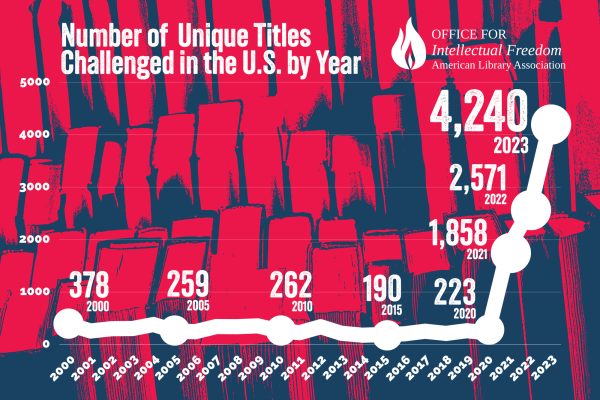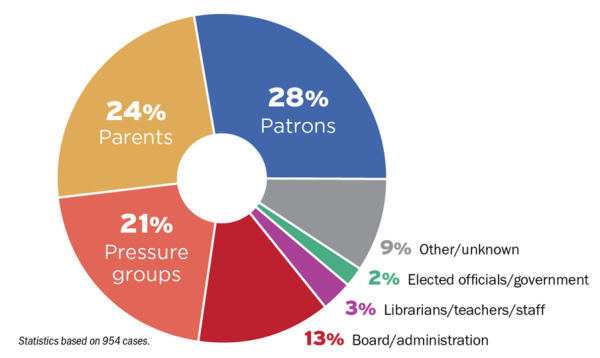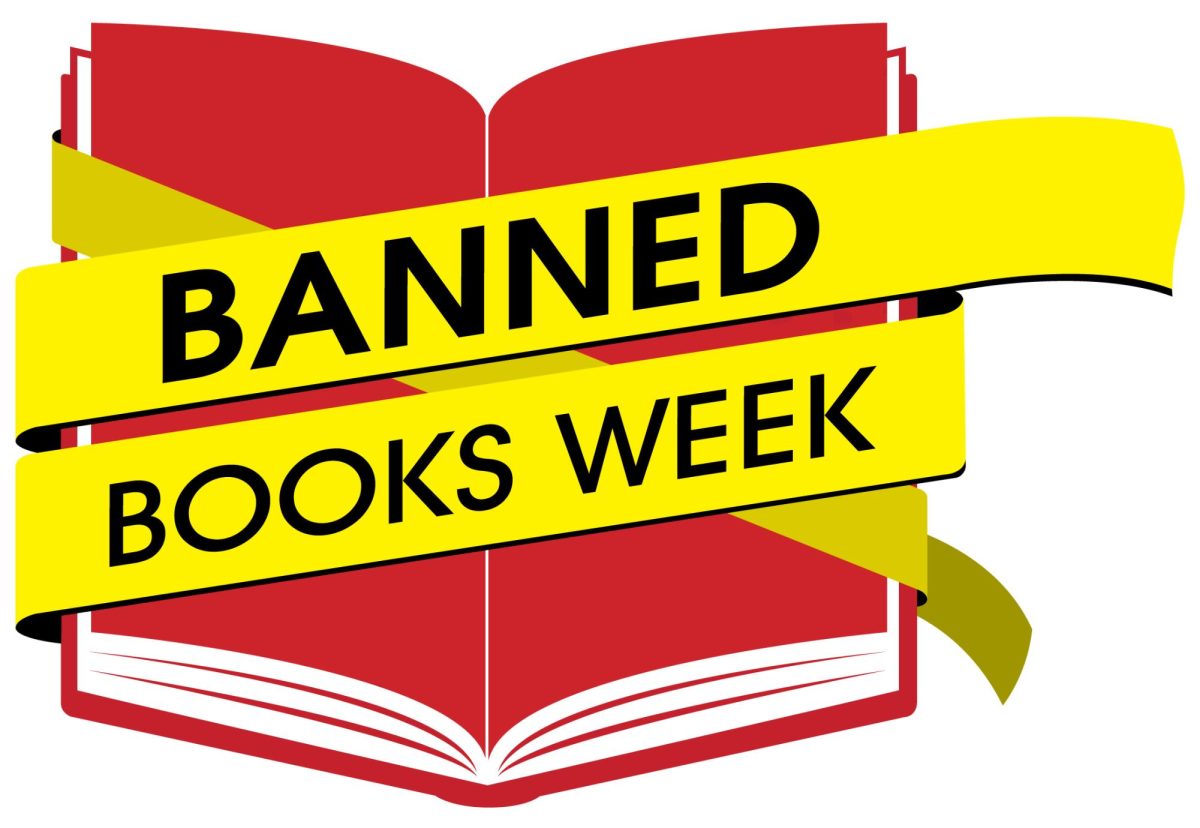This year’s Banned Books Week, held Sept. 22-28, is an annual event that highlights the value of free and open access to information. Launched in 1982, the event was in response to a sudden surge in the number of challenges to books in libraries, bookstores and schools.
Banned Books Week continues to be a relevant and important week for spreading awareness of the issue of banning books. In fact, it’s more relevant than it has ever been.
According to the American Library Association, ALA’s Office for Intellectual Freedom documented 1,247 demands to censor library books and resources in 2023, a 65% increase compared to 2022, reaching the highest levels ever documented by OIF in more than 20 years of tracking.
This resulted in 4,240 unique book titles being targeted for removal from schools and libraries. This tops the previous high from 2022, when 2,571 unique titles were targeted for censorship. Titles representing the voices and lived experiences of LGBTQIA+ and BIPOC individuals made up 47% of those targeted in censorship attempts.

Groups and individuals demanding the censorship of multiple titles, often dozens or hundreds at a time, drove this surge in 2023. Attempts to censor more than 100 titles occurred in 17 states: Colorado, Connecticut, Florida, Idaho, Illinois, Iowa, Kentucky, Maryland, Missouri, North Carolina, Ohio, Pennsylvania, Tennessee, Texas, Utah, Virginia and Wisconsin.
In Texas and Florida, these censorship attempts included more than 1,000 unique books.
What’s most concerning is that this list only includes libraries that have sent information to ALA.
“A lot of public libraries won’t report book challenges in fear of losing funding,” said Shane White, assistant professor of library science. “It’s a form of self-censorship.”
White is a chair member of the Indiana Library Federation. He gives insight on book bans to public libraries and K-12 schools and how they affect higher education academia.
White said the university doesn’t have the same fears public libraries have when it comes to book challenges.

“We deal with legal adults,” he said. “We also have a code of ethics when it comes to information that allows us to argue what information we provide to students.”
White said the issues higher education face have to do with culture shock.
“When we cut back on access to information, that affects our students,” he said. “When you impact that early access to information, it affects the academic preparedness of our incoming students.”
In Indiana, Governor Eric Holcomb signed House Bill 1447, a book restriction bill, in 2023 that made it easier for community members to request the removal of books from schools that they believe are inappropriate. This also means that if a teacher or school librarian provides a student with a book their parent believes is harmful, and a prosecutor agrees, they could be charged with a crime, and they can’t use the book’s educational value as a defense.
This push towards book bans and restrictions comes after a shift in book challenges. Prior to 2020, the majority of challenges to library books and resources were brought by an individual parent who sought to remove or restrict access to a book their child was reading. Recent censorship data are evidence of a growing, well-organized, conservative political movement known as astroturfing, including organizations such as Mom’s for Liberty, which formed in 2021.

The ALA Office for Intellectual Freedom (OIF) compiles lists of challenged books as reported in the media and submitted by librarians and teachers across the country. The Top 10 Most Challenged Books of 2023 are:
- “Gender Queer” by Maia Kobabe
Reasons: LGBTQIA+ content, claimed to be sexually explicit - “All Boys Aren’t Blue” by George M. Johnson
Reasons: LGBTQIA+ content, claimed to be sexually explicit - “This Book is Gay” by Juno Dawson
Reasons: LGBTQIA+ content, sex education, claimed to be sexually explicit - “The Perks of Being a Wallflower” by Stephen Chbosky
Reasons: Claimed to be sexually explicit, LGBTQIA+ content, rape, drugs, profanity - “Flamer” by Mike Curato
Reasons: LGBTQIA+ content, claimed to be sexually explicit - “The Bluest Eye” by Toni Morrison
Reasons: Depiction of rape, incest, claimed to be sexually explicit, EDI content - (TIE) “Tricks” by Ellen Hopkins
Reasons: Claimed to be sexually explicit, drugs, depiction of rape, LGBTQIA+ content - (TIE) “Me and Earl and the Dying Girl” by Jesse Andrews
Reasons: Claimed to be sexually explicit, profanity - “Let’s Talk About It” by Erika Moen and Matthew Nolan
Reasons: Claimed to be sexually explicit, sex education, LGBTQIA+ content - “Sold” by Patricia McCormick
Reasons: Claimed to be sexually explicit, depiction of rape
Banned Books Week is a chance to highlight the blatant censorship that faces American citizens every day. To have the government step in and lay down laws that block the public’s access to information is unconstitutional. Every U.S. citizen has the right to seek out information and this uptick in book bans is a violation of this right.
While Banned Books Week only happens once a year, this is a fight that happens every day and is becoming more serious. The freedom to explore new ideas and different perspectives is under threat, and book bans don’t just restrict access to stories—they undermine our rights. By banning books, we deny ourselves the opportunity to learn from the past and to envision a braver future.
The American Library Association has multiple ways to get involved, including encouraging everyone to take at least one action on Sept. 28, which is Let Freedom Read Day.
Together, we can make sure every story continues to be heard and to ensure diverse voices are heard. It is time to come together, celebrate the right to read and find freedom in the pages of a book because banning one book is a threat to all books.



